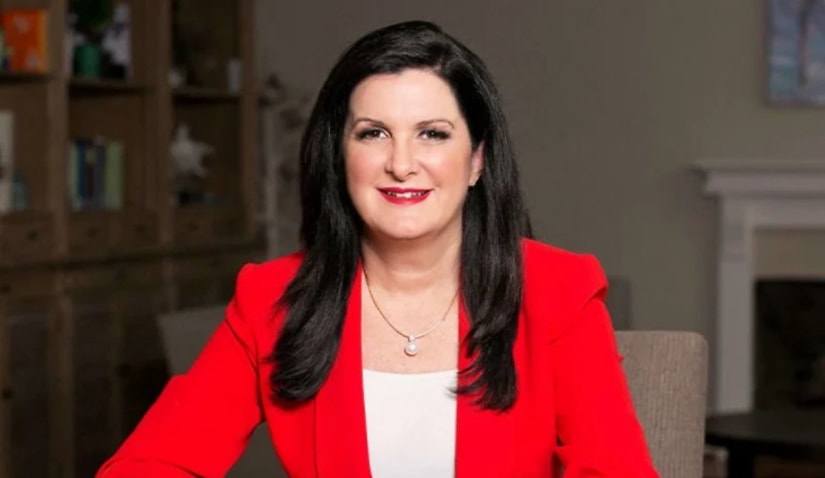A Sydney solicitor who promoted a “false and misleading” asset protection scheme was handed a $1 million penalty, banned from managing corporations, and told to refund millions to duped students.

DG Institute and solicitor Dominique Eva Grubisa (pictured) were ordered to pay millions of dollars in penalties and refunds for promoting and selling two education programs that made false or misleading promises to protect consumers’ assets and equity.
DG Institute was ordered to pay a pecuniary penalty of $5 million to the Commonwealth of Australia, but the order was stayed and of no effect unless and until redress was offered to the students.
The redress is in the region of $14.7 million.
Grubisa, who submitted she should only have to pay $50,000 for her role in the contraventions, was handed a $1 million penalty.
When the original judgment was handed down in April, the Australian Competition and Consumer Commission (ACCC) said the case should serve as a reminder to company directors “that they may be held liable for their involvement in false or misleading representations”.
The first of the two programs, the Real Estate Rescue (RER), taught its students to assist “distressed home owners” with selling their property but retain some of the value of the equity they held.
This was in circumstances where the home owners would otherwise lose the equity if the mortgagee were to repossess the property.
RER taught consumers to identify the home owners by monitoring court lists for possession, divorce or probate proceedings.
Justice Jackman found the “No Equity Representations” were inherently serious because students were told they could help the home owners “who otherwise would not retain any equity”.
“It therefore had the intended effect of encouraging consumers to purchase a course offered by DG Institute (costing thousands of dollars …) on an entirely false premise, which was known to be false by Grubisa,” Justice Jackman said.
The second program, known as the Vestey Trust or Master Wealth Control (MWC) program, promised students “complete and immediate protection from creditors to the extent of all their end worth”, when it could only afford protection of a limited amount.
This was “more egregious” than the No Equity Representations and it warranted “the imposition of a substantial penalty”, the court found.
“The structure was promoted as offering complete and immediate protection over all assets, when the structure did not and could not do so, and Grubisa knew that it did not and could not do so.
“Consumers who enrolled in the MWC course therefore paid thousands of dollars for a service which did not offer the protection offered, when that protection was likely to have been the fundamental reason that consumers were willing to pay for that service,” Justice Jackman said in his written reasons.
The Federal Court also held DG Institute made a false and misleading claim while promoting MWC that it was approved by a Full Court in Sharrment Pty Ltd v Official Trustee In Bankruptcy [1988] FCA 266.
Both DG Institute and Grubisa were restrained from making any further representations about either program, and Grubisa was also banned from managing a corporation for five years.
In determining the orders to be made, the court noted that 1,851 customers were in the RER program, each of whom paid between $4,500 and $6,500 to enrol if they paid a lump-sum payment, or between $5,400 and $7,800 if they paid in instalments.
In the MWC program, 2,112 customers provided a lump-sum payment between $6,500 and $7,500, or between $7,200 and $9,200 when the payments were made in instalments.
In total, DG Institute received over $9 million for the RER program and over $14 million for the MWC program.
Although the company reported a total revenue of over $50 million for those five years, its profit sat around $7,725.
DG Institute’s consultant said the business spent most of its profits on travel, event plans, strategic relationships, joint ventures, and marketing resources, including payments for Facebook marketing.
The ACCC originally sought a $20 million penalty, but Justice Jackman said the figure was not appropriate.
Instead, he said the $5 million penalty would still be “substantially more than the net benefit derived by DG Institute” and would have an “appropriate effect in terms of general deterrence”.
Justice Jackman accepted the ACCC’s request for a $1 million penalty for Grubisa, given she “knew that the relevant representations were false and misleading when she made them repeatedly on behalf of DG Institute”.
In a letter proposed to be sent to the MWC students, DG Institute and Grubisa included “misleading and deceptive” communication that referred incorrectly to Justice Jackman’s original judgment and offered a revised model that “falls a long way short” of providing complete protection to the customer’s assets.
“The respondent’s proposed remedial scheme thus involves a false and misleading representation in further contravention of the ACL and is manifestly inappropriate as the basis of any order by the court.
“Moreover, by proposing a misleading and deceptive scheme, the respondents have demonstrated that they have learnt little or nothing from the liability judgment, and certainly have not demonstrated contrition or any other conduct which might mitigate the orders which the ACCC seeks,” Justice Jackman said.
Matthew Burgess, director of View Legal, said Grubisa’s proposal was “radically different” to the notice the court settled on.
“Interestingly, part of the suggested approach by Grubisa contained (apparently due to an oversight) the wording ‘use British spelling please, ChatGPT’,” Burgess said.
The Law Society of NSW has been pursuing disciplinary proceedings for a professional misconduct finding against Grubisa.

Naomi Neilson is a senior journalist with a focus on court reporting for Lawyers Weekly.
You can email Naomi at: